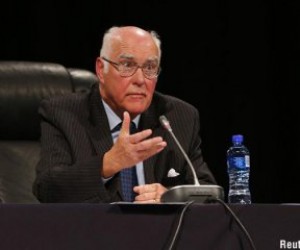The task of Judge Ian Farlam’s Commission of Inquiry to determine precisely what circumstances and factors were the identifiable causes of the loss of life at Marikana, will probably reveal the tip of an iceberg and lead to recommendations that may be applicable to many sectors of, or to the entire mining industry.
Much public debate has been going on recently in terms of miners’ wages, living conditions, the migrant worker system, health, safety, etc.
As outgoing president Dr Xolani Mkhwanazi said at the Chamber of Mines' AGM in November:
“The Chamber of Mines and its members look forward to constructively addressing all of those findings that emerge from the Farlam Commission and on which they have capacity to make a meaningful contribution. It is a process that the Chamber will seek to pursue with its major stakeholders, most particularly government and representatives of organised labour.
“Already there is acceptance among members of the Chamber that the chaotic recent events will demand diligent introspective interrogation, which will in all probability produce major structural changes in both the operational and socio-economic environments in which mining companies are principal participants.
“In addition to achieving sustainable workplace stability, all interventions that are made will be aimed at strengthening the industry’s commitment to a caring, fair and equitable employment landscape in which the dignity, the safety and the good health of all employees are systematically preserved by adherence to the best universal standards of human decency.”
Solutions
It is clear that Mkhwanazi’s successor will follow this course. Shortly after being elected, Mark Cutifani, who is also chief executive of AngloGold Ashanti, told reporters he was confident that South Africa’s stricken mining sector would find creative solutions to solve its labour problems.
Cutifani has acknowled that in order to prevent another Marikana tragedy, social issues such as the workers’ living conditions had to be tackled and that effective engagement across the broadest front was needed to restore sound labour relations.
“We’re going to turn it around together,” Cutifani told Mining Weekly Online in a video interview two days into his new office.
He said most South African mining companies were working on social and labour plans that reached out to local communities and their workforces. If that meant using company expertise to help local communities, then that was what should be done.
“I’m imploring everybody to get involved in their local communities and become part of those communities in every sense of the word,” Cutifani added.
He described the enhancement of the human dignity of the workforces as the most important task at hand.
But the government has to come to the party as well. Despite several high-level assurances that it will not nationalise the mining industry, it is an issue that refuses to go away.
Back to Mkhwanazi: “It (nationalisation) thus continues to be a source of profound consternation for investment fund managers throughout the world.”






